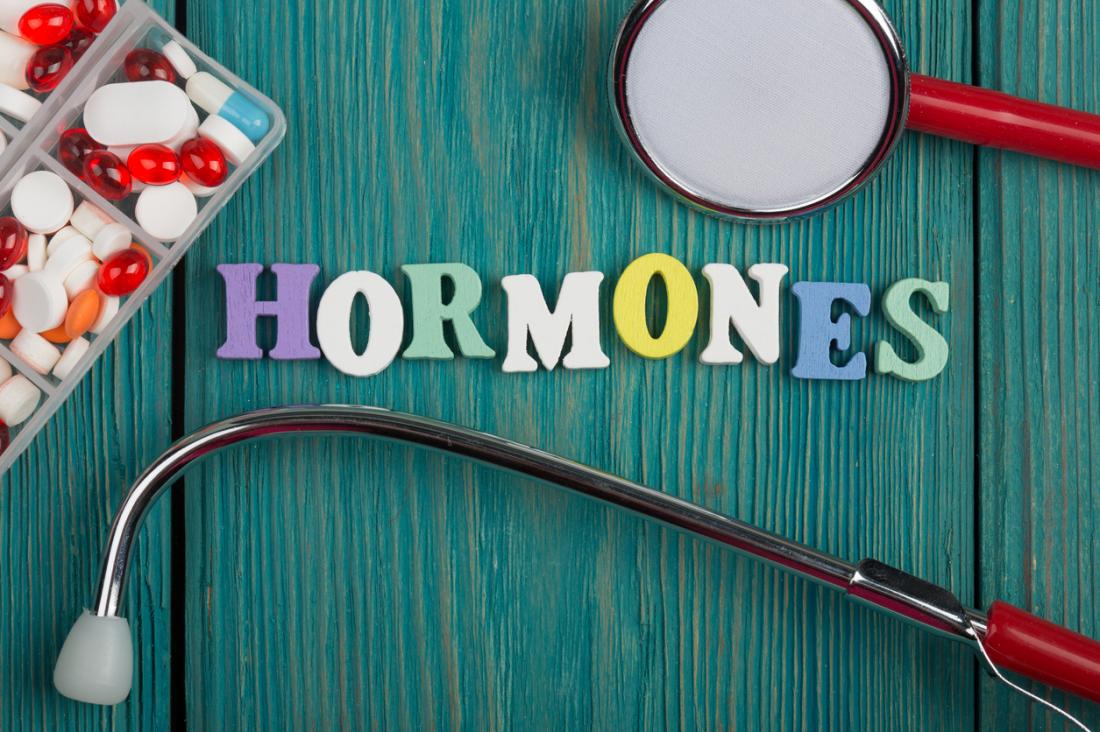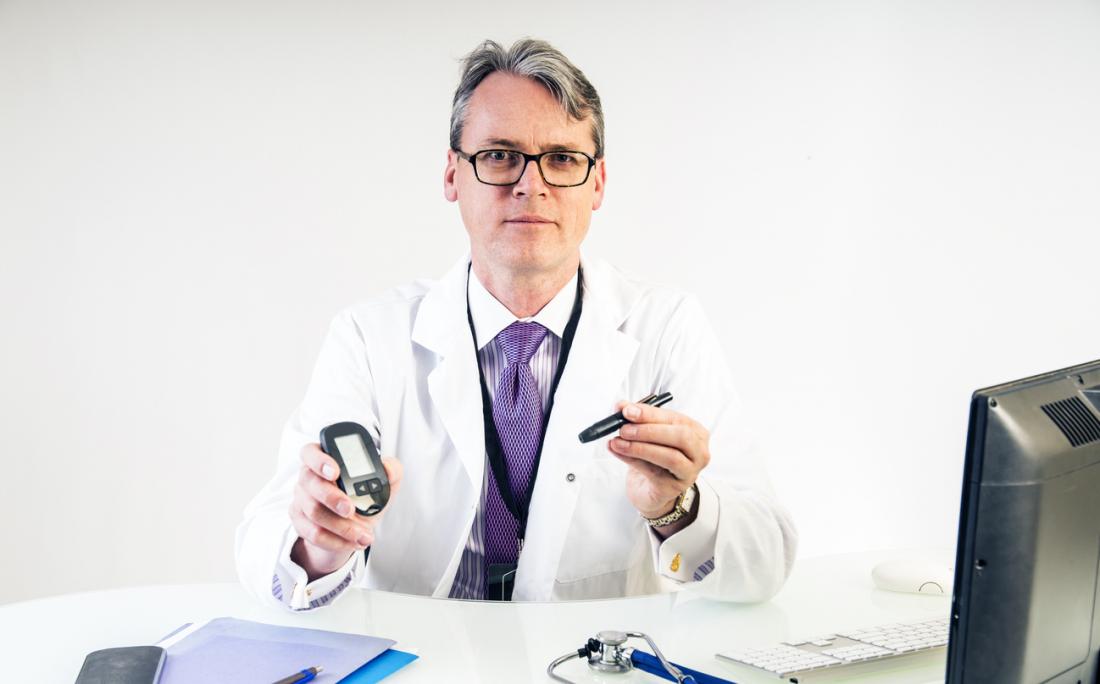what to expect at first developmental pediatrician visit
The human endocrine arrangement consists of a number of glands, which release hormones to control many unlike functions.
When the hormones get out the glands, they enter the bloodstream and are transported to organs and tissues in every part of the trunk.
Adrenal glands

Endocrinology refers to a medical focus on hormones. Hormones shape the trunk and bulldoze its systems.
The adrenal, or suprarenal, glands are located on top of the kidneys. They are divided into two regions. The right gland is triangular, and the left is crescent-shaped.
The adrenal glands secrete:
- corticosteroids, the steroids involved in stress responses, the immune system, inflammation, and more
- catecholamines, such every bit norepinephrine and epinephrine, in response to stress
- aldosterone, which affects kidney part
- androgens, or male sex hormones, including testosterone.
Both men and women take some androgen, simply men have higher levels. Androgens command the development of characteristics associated with males, similar facial hair and a deeper voice.
Hypothalamus
The hypothalamus is located merely above the brain stalk and below the thalamus.
This gland activates and controls involuntary body functions, including respiration, centre rate, appetite, slumber, temperature, and the circadian cycles, or daily rhythms.
The hypothalamus links the nervous system to the endocrine arrangement via the fastened pituitary gland.
Ovaries and testicles
The ovaries are located on either side of the uterus in females. They secrete the hormones estrogen and progesterone.
These hormones promote sexual development, fertility, and menstruum.
The testicles are located in the scrotum, below the penis in males. They secrete androgens, mainly testosterone.
Androgens control sexual evolution, puberty, facial hair, sexual behavior, libido, erectile function, and the formation of sperm cells.
Pancreas
Located in the abdomen, the pancreas is both an endocrine gland and a digestive organ.
Information technology releases:
- Insulin: Important for saccharide and fatty metabolism in the body
- Somatostatin: Regulates endocrine and nervous organization function and controls the secretion of several hormones, such as gastrin, insulin, and growth hormone
- Glucagon: A peptide hormone that raises blood glucose levels when they fall too low
- Pancreatic polypeptide: This helps control the secretion of substances made by the pancreas
Diabetes and digestive issues can result if there are problems with the pancreas.
Parathyroid glands
- These small endocrine glands located in the neck produce parathyroid hormone, which regulates calcium and phosphate in the blood.
- Muscles and nerves can only operate safely and effectively if these chemicals are at the correct levels.
Pineal trunk, or pineal gland
This is a minor endocrine gland located deep in the brain. It secretes melatonin and helps command the body's sleep patterns and moderate levels of reproductive hormones.
Pituitary gland
An endocrine gland attached to the hypothalamus at the base of the brain.
It is sometimes called the main endocrine master gland because information technology secretes hormones that regulate the functions of other glands, besides every bit growth and several other actual functions.
The anterior, or front end, pituitary secretes hormones that touch sexual evolution, thyroid part, growth, peel pigmentation, and adrenocortical function.
If the inductive pituitary is underactive, information technology can lead to stunted growth in childhood and underactivity in other endocrine glands.
The posterior, or rear, pituitary secretes oxytocin, a hormone that increases contractions of the uterus and antidiuretic hormone (ADH) which encourages the kidneys to reabsorb water.
Thymus gland
The thymus is an endocrine gland located beneath the breastbone, or sternum.
T lymphocytes, a type of allowed cell, mature and multiply in the thymus gland early in life. Later on puberty, the gland shrinks.
The thymus gland plays a part in the immune system, which protects the body confronting disease and infection.
Thyroid gland
A butterfly-shaped gland located just below the Adam'south apple tree in the neck, the thyroid produces hormones that play a key function in regulating blood pressure, body temperature, heart rate, metabolism, and how the body reacts to other hormones.
The thyroid gland uses iodine to create hormones.
The two main hormones it produces are thyroxine and triiodothyronine.
It also produces calcitonin, which helps strengthen bones and regulates the metabolism of calcium.
Below is a 3-D model of the endocrine system, which is fully interactive.
Explore the model using your mouse pad or touchscreen to empathize more about the endocrine organization.
A hormone imbalance can result from genetic or environmental factors.
Some infants are born with hormonal issues that tin can lead to a range of wellness issues, such as low growth.
Endocrine-disrupting chemicals, such equally pesticides, lead, and phthalates, which are used in plastic food containers, can sometimes atomic number 82 to hormonal bug.
In that location are three broad groups of endocrine disorders:
- A gland does not produce plenty of its hormones. This is known equally endocrine gland hyposecretion
- A gland produces too much of its hormones, as well referred to as hypersecretion.
- Tumors develop in the endocrine glands. They may be malignant, or cancerous, but they may as well be beneficial, or not-malignant.
What can go wrong?
Here are some examples of what tin happen if a gland secretes too much or too picayune of its hormones.
Adrenal Gland
- Hypersecretion may lead to over-nervousness, sweating, raised blood pressure, and Cushing's illness
- Hyposecretion may atomic number 82 to Addison's affliction, Mineralocorticoid deficiency, weight loss, loss of energy, and anemia
Pancreas
- Hypersecretion may lead to hyperinsulinism, also much insulin can lead to low blood glucose
- Hyposecretion may lead to one type of diabetes
Parathyroid Gland
- Hypersecretion may lead to brittle basic that fracture hands, as well as stones in the urinary system
- Hyposecretion may lead to involuntary muscle contractions, or tetany, caused past low levels of calcium in plasma
Thyroid Gland
- Hyperthyroidism most often stems from Graves' disease. Information technology can atomic number 82 to accelerated metabolism, sweating, arrhythmia or irregular eye vanquish, weight loss, and nervousness.
- Hypothyroidism may lead to tiredness, weight gain, depression, abnormal bone evolution, developmental filibuster, and stunted growth.
Pituitary Gland
- Hypersecretion may lead to gigantism, or excessive growth
- Hyposecretion may lead to slow bone growth and brusque stature
Thymus Gland
- Hypersecretion may atomic number 82 to an overactive allowed organisation which overreacts to perceived threats. This may event in an autoimmune affliction.
- Hyposecretion may lead to a weakened immune arrangement, where the trunk is unable to fight infection and easily succumbs to viruses, bacteria, and other pathogens.
If your medico suspects that the underlying crusade of a medical status is related to hormone production, they may refer you to an endocrinologist, a dr. who specializes in endocrinology.
These doctors are trained to diagnose and manage diseases that affect the glands and the hormones.
An endocrinologist aims to restore hormone residue within the body'southward systems.
Endocrinologists commonly treat the following atmospheric condition:
- diabetes
- osteoporosis
- menopause
- metabolic disorders
- thyroid diseases
- excessive or bereft production of hormones
- some cancers
- short stature
- infertility

An endocrinologist specializes in the diagnosis and treatment of a variety of conditions related to hormone imbalances and problems.
During the first visit, the medico will enquire the patient a series of questions to help reach a diagnosis.
These might cover:
- electric current medications
- family history of hormonal problems
- other medical weather condition including allergies
- dietary habits
It can help to list any existing symptoms before the visit.
The endocrinologist might ask about symptoms that do not seem to be related, or that seem unnecessary.
This is because hormone levels impact so many unlike systems in the body that merely pocket-sized changes in one gland can touch on parts of the body far from the site of the glands themselves.
They will check the patient's eye rate and blood pressure, and await at the condition of their peel, hair, teeth, and mouth.
Claret and urine samples may exist taken.
Following diagnosis, the endocrinologist volition suggest a treatment program. This will depend on which underlying status is causing the symptoms.
Hormones affect functions throughout the body. An imbalance can crusade a wide range of health issues.
A family md may refer a patient to an endocrinologist if they suspect that a hormone trouble is the underlying cause of a wellness problem.
If you need to discover an endocrinologist, the website of the American Clan of Clinical Endocrinologists has a list of qualified practitioners.
Cheque with your insurer regarding cover.
Read the commodity in Castilian.
Source: https://www.medicalnewstoday.com/articles/248679
Postar um comentário for "what to expect at first developmental pediatrician visit"